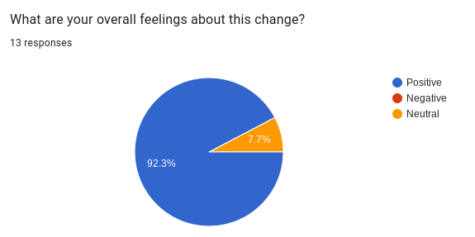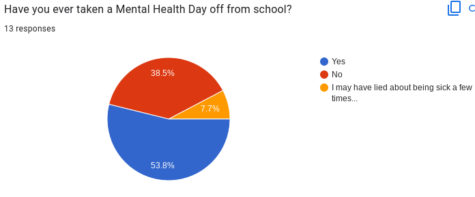Shoreline School District Now Considers Mental Health Days Excused Absences
In early November of 2022, Shoreline School District updated its attendance policy to include mental health days as an excused absence, like a traditional sick day. This policy change came directly from a new Washington state bill recognizing the necessity of mental health days and instructing districts to update their policies. Our district’s policy now lists valid reasons for an excused absence as, “Physical health or mental health symptoms, illness, health condition or medical appointment for the student or person for whom the student is legally responsible.” Basically, the definition of a sick day has been expanded to include more mental health-related needs such as therapy appointments, in/outpatient treatments, and general mental well-being. This includes times when students may feel burnt out or depressed, and just need a break. As one student I spoke to put it, “Some days I don’t have the mental capacity for school and I need a day for myself so that I can return more ready to learn.”
In recent years, society as a whole has become much more conscious of people’s mental health needs. This district policy change reflects this and encourages further support and discussions about the needs of those around us. Superintendent Susana Reyes supported this, saying, “By excusing mental health days for our students in accordance with state policy, we hope to reduce stigma, identify opportunities to provide support to students in need and allow for open and honest communication about reasons for absences. We care deeply about our students’ health in all ways, including mental health. This policy revision supports our core values as a community.”

I surveyed a handful of Shorecrest students to find out their opinions on this change. Keep in mind that these answers may not be reflective of the entire population, just those who chose to answer my questions. Some responses may be edited for length or clarity.
The vast majority of respondents agreed that this was a positive change. One student expanded on this by saying, “Mental health is severely under-recognized as a valid reason for absences. I think this change is a positive step toward treating student wellness as the important factor it is.” Another said, “I think it’s really good! It will help a lot of kids when they’re struggling and need to take a day off.” Another, who had missed school for mental health reasons in the past, commented, “I’m glad that now I don’t have to fake being sick to get a day off.”

One concern that may come up is the possibility of students abusing this change. However, I personally doubt this will happen. As shown in many of the responses I received, students have already been taking mental health days by “faking sickness.” All this change does is allows open conversations about mental health and support. Another fact that supports this is the responses I received to the question, “Does this change make it more likely for you to take a mental health day off from school?” If people were clamoring to skip school using this as an excuse, the responses would likely be an overwhelming “yes”. In reality, “yes” and “maybe” both had 38.5% of votes, while “no” had 7.7%, and 15.4% of people answered something else. These responses are mixed enough for me to feel confident that the amount of people helped by this change heavily outweighs the amount who may take advantage of it.
To conclude, this change seems to be an overwhelmingly positive one. As we go into 2023, mental health awareness and assistance have become more important than ever, and it is important for institutions like our schools to recognize this and take action. We may not see the immediate effects of policy changes like this, but it is likely they will make a significant difference to both individual students and our school climate as a whole.













